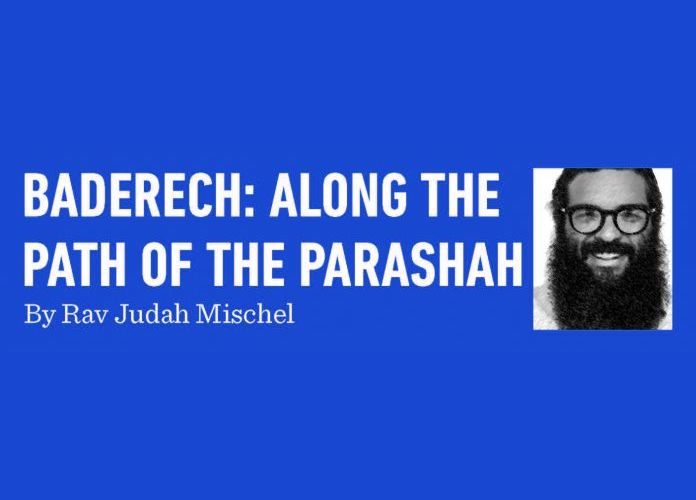In addition to gadlus in Torah, Rav Mordechai Gifter, zt”l, rosh yeshiva of Telshe Yeshiva in Wickliffe, Ohio, was a very kind, sensitive soul and easy to relate to. Born and bred in Portsmouth, Virginia, the rav was among the greatest Torah giants in America, renowned as an inspiring, impactful orator fluent in English, Yiddish, and Hebrew.
In 1977, Rav Gifter led a group of talmidim from Cleveland to Eretz Yisrael and opened a branch of the yeshiva in the community of Kiryat Ye’arim in the Jerusalem Hills. This act laid the foundations for the yishuvknown as Telz-Stone. Though deeply connected to Eretz Yisrael, he ultimately moved back to the United States due to his responsibilities and sense of achrayus to the yeshiva in Ohio. From that point on, he felt an acute distress in being compelled to live in Chutz La’Aretz. In humility, Rav Gifter eschewed his on-campus residence and moved into small quarters in the students’ dormitory.
During the years when Rav Gifter was living in the Jerusalem Hills, he took daily walks, breathing in the holy air, the avira d’Eretz Yisrael, enjoying the breathtaking scenery and spiritually charged stones, soil, fields, and trees.
Once during one of his walks, the rosh yeshiva commented to his talmidim that he had heard a soul-stirring song wafting in the breeze and echoing through the hills. He looked around to locate where it might be coming from but couldn’t find anyone singing. With increasing desire and rapture, he ran around to the other side of the hill, in search of the singer of such an exquisite, divine melody. Breathless, he finally sat down on a large rock, when the realization hit him: The song was coming from himself! The nigun was, so to speak, his own! His mind and heart were so full of the elevating, inspiring atmosphere of Eretz Hakodesh enveloping him that his inner ear spontaneously resonated with it as a Heavenly melody.
This Shabbos celebrates Shiras Hayam, the Song of the Sea. Experiencing the awesome miracles and Hashem’s revealed wonders, each of us—women and men, young and old—was granted the highest levels of mochin d’gadlus, awe and expansive consciousness, as well as nevuah, prophecy: “A maidservant saw at the Sea more than what Yeshayahu and Yechezkel saw” (Mechilta).
The entire nation heard a divinely beautiful song flowing through their own minds and hearts. “Kol Dodi dofek,” “the voice of my Beloved comes knocking” (Shir Hashirim 5:2). Reb Nosson of Breslov hears the word dofek as meaning “pulsing.” While the voice of my Beloved, the Ribbono shel Olam, is omnipresent, it pulsates and resonates in my inner ear, my deepest thoughts, intuition, and perceptions. Moshe and Bnei Yisrael heard the same prophetic, inner song, the song revealed in the Torah, the voice of Hashem.
“Kol Hashem b’hadar”—“the voice of Hashem is in beauty” (Tehillim 29:4).
We, too, when walking among the beautiful rocky hills of Yerushalayim, the worn cobblestones of the Old City, the dusty trails of the Negev, the forests, fields, and mountains of the Galil, can be inspired by the expansive holiness of the Land and find ourselves intuitively humming, hearing an inner rhythm. This is more than getting “high on your own supply.” Rebbe Pinchas of Koretz assures us: “The soul is always whispering to us.”
This is similar to one of the themes in Walt Whitman’s famous poem “Song of Myself.” While lengthy and slightly rambling, this ode to individuality and originality expresses an endless yearning for immortality and physical sense of belonging to the world around us. Indeed, as we walk through the Land with intentionality, we can hear the whispers of our soul growing louder, swelling and expanding until we are literally singing in praise with a true sense of embodied holiness and belonging.
The Ribbono shel Olam is the Shomea Tefillah, “the One who Hears Prayer.” The Zohar HaKadoshexplains, “Tefillah is an allusion to the Jewish People who are themselves called ‘prayer.’” Thus, when we connect with the latent potential that lies within us and awaken deep, subconscious thoughts of teshuvah, or when we experience an authentic moment of connection, yearning, inspiration, or awe at the preciousness of the Land that G-d gave us, what emerges is the “Song of Our Soul.” And this is the same source of the prayer-song, the prophetic shirah, that arose in the hearts of the entire nation while standing on the banks of the Yam Suf, beholding their miraculous salvation from their pursuers.
And this is the same awakening that the Master of the World is waiting for, the song He yearns for and anticipates hearing from within us today. May we listen to the voice of our Beloved knocking, pulsating within and without, and recognize it as the voice of our own soul!
Rabbi Yehoshua ben Levi asked Mashiach, “When will the Master come?”
Mashiach said to him, “Today!” …
Eliyahu HaNavi explained, “Today—if you will listen to (Hashem’s) voice.” (Sanhedrin 98a).
Rav Judah Mischel is executive director of Camp HASC, the Hebrew Academy for Special Children. He is the mashpia of OU-NCSY, founder of Tzama Nafshi, and the author of “Baderech: Along the Path of Teshuva.” Rav Judah lives in Ramat Beit Shemesh with his wife, Ora, and their family.












